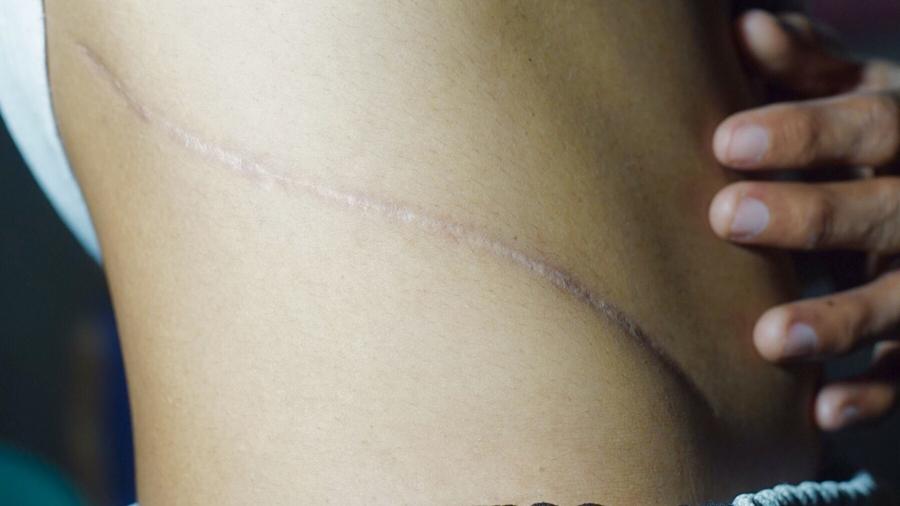Displaced Filipino workers turn to selling own kidneys to survive amid pandemic

Some displaced Filipino workers have turned to selling their own kidneys online just to get, by amid the coronavirus disease (COVID-19) pandemic.
In a “Kapuso Mo, Jessica Soho” episode, “Gardo,” not his real name, shared that his license as a security guard expired and he was just about to look for another job when the lockdown was implemented in the Philippines.
With no source of income for five months now, “Gardo” has been deep in debt and considered selling off his own kidney to survive.
“Macoy,” not his real name, who worked at a horse racing field, also lost his job.
“Macoy” then decided to sell his kidneys online. He found a Facebook group where members could sell their kidneys.
Once they agree on a transaction, the two parties would discuss privately on Messenger and share their real names, details of the sale, and sometimes photos of the patients.
According to “Macoy,” a person could sell his kidney for P350,000 up to P450,000.
“Gagamitin ko sa maliit na negosyo. Kahit maliit na karinderya lang. Alam kong bawal, pero ite-take ko na lang iyong risk. Hindi ako matatakot magbenta ng kidney kahit pandemic ngayon dahil kailangan na kailangan ng pamilya ko dahil wala kaming pangkabuhayan (I’d use it to start a small busines. I know it’s illegal, but I’m going to take that risk. I’m not afraid to sell my kidney even if there’s a pandemic, because my family really needs the money),” Macoy said.
“Lisa,” Macoy’s buyer, revealed that her father had Stage 5 chronic kidney disease. He’d been going through 10 months of dialysis and needed a kidney transplant, which costs around Php 1.5 million-2 million.
Out of desperation, Lisa posted her plea for help in a Facebook group. She shared that almost immediately, people messaged her that they were willing to sell their kidney.
“Nag-approach sa akin siguro more than 10. ‘Yung mga nakausap ko, mga hinihingi nila sa amin ay Php 350,000-500,000 (More than 10 people approached me. They were asking for Php 350,000-500,000),” she said.
Kidney trade
According to Social Weather Stations’ survey in July, 45.5% of the adult labor force, or around 27.3 million Filipinos have lost their jobs amid the pandemic.
Because of this, more and more people are doing dangerous things to survive, including selling their own kidneys.
Kidneys are organs that filter toxins in the body. Studies have shown that humans can function with one kidney so donating a kidney while you’re still alive is possible.
However, the National Kidney Transplant Institute (NKTI) reiterated that selling one's kidney is an illegal and dangerous practice.
"Hindi lang siya medikal na problema, it's actually a social problem. Ang ugat ng pagbebenta ng kidneys ay kahirapan, poverty. Wala namang nagbebenta ng kidney na mayaman (It's not just a medical problem. It's a social problem. Poverty is the reason why people resort to selling their kidney)," Dr. Benita Padilla from NKTI added.
“Emil,” not his real name, sold his kidney for Php 300,000 last March. He shared that he’s been constantly worried about his health since the pandemic started.
“Emil” said a friend encouraged him to sell his kidney in September last year. He said he did it for his family, so he could give them a shelter and start a business.
After receiving the payment, “Emil” said he used it to get a decent home for his family.
He shared that he spent almost P94,000 on a house, P70,000 on a tricycle, and helped out some people who needed money.
In the same month, however, Emil’s child got sick with pneumonia and was brought to the hospital. To pay for the hospital expenses, he had to sell his tricycle for half the price.
In just one month, the P300,000 Emil received as payment was gone. He had to go back to selling on the streets.
“Kung meron naman akong maayos na trabaho, hindi ko rin naman po sana ibebenta ‘yung kidney ko (If I had a stable job, I wouldn’t have sold my kidney),” “Emil” shared. “Minsan lumilipas po ’yung araw na hindi kami nakakakain. Gusto ko naman na maiahon sila. Kahit ano po ang kapalit (Sometimes we would have nothing to eat. I just want to give my family a good life, no matter the cost).”
In a written statement to KMJS, a Facebook spokesperson said that there are clear rules that prohibit the buying or selling of regulated goods on the platform, including human organs. Facebook also said that they have removed the pages and groups where these kinds of transactions happened.
Despite the numerous risks people are willing to take, if no proper help and assistance is given by the government, many more will lose important parts of their bodies—and their lives. – Kaela Malig/RC, GMA News



